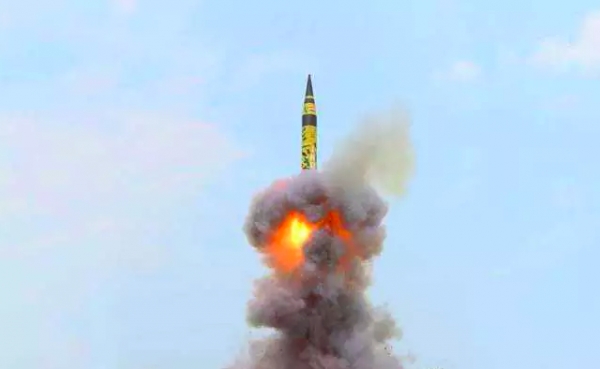India today successfully test-fired its indigenously developed nuclear capable long range ballistic missile Agni-5 with a strike range of 5,000 km. The missile was launched from Dr Abdul Kalam Island off the Odisha coast.
The surface-to-surface missile was launched with the help of a mobile launcher from launch pad number 4 of the Integrated Test Range at Dr Abdul Kalam Island, earlier known as Wheeler Island, in the Bay of Bengal at 9:48 am. This was the sixth trial of the state-of-the-art Agni-5 ballistic missile.
The trial was a total success as the missile hit its target with pin-point accuracy after covering its full distance, sources told news agency PTI. "The flight performance of the missile was tracked and monitored by radars, tracking instruments and observation stations all through the mission," they said.
Unlike other missiles of the series, Agni-5 is the most advanced with new technologies in terms of navigation and guidance, warhead, and engine, said a Defence Research and Development Organisation or DRDO official.
Agni-5's navigation systems, very high accuracy Ring Laser Gyro based Inertial Navigation System or RINS, and the most modern and accurate Micro Navigation System or MINS ensured that the missile reached its target with precision.
The Agni-5 missile has a high speed on-board computer and fault tolerant software along with a robust and reliable bus. Its path is precisely directed by the advanced on-board computer and inertial navigation system.
The three-stage, 17-metre tall, two-metre wide Agni-5 missile is capable of carrying a nuclear warhead of about 1.5 tonnes. The missile also has higher reliability, longer shelf life, less maintenance and enhanced mobility.
At present, apart from the Agni-5, other Agni missiles that India has in its armoury are: Agni-1 with a 700-km range, Agni-2 with a 2,000-km range, Agni-3 and Agni-4 with 2,500 km to more than 3,500 km range. (ndtv.com)










